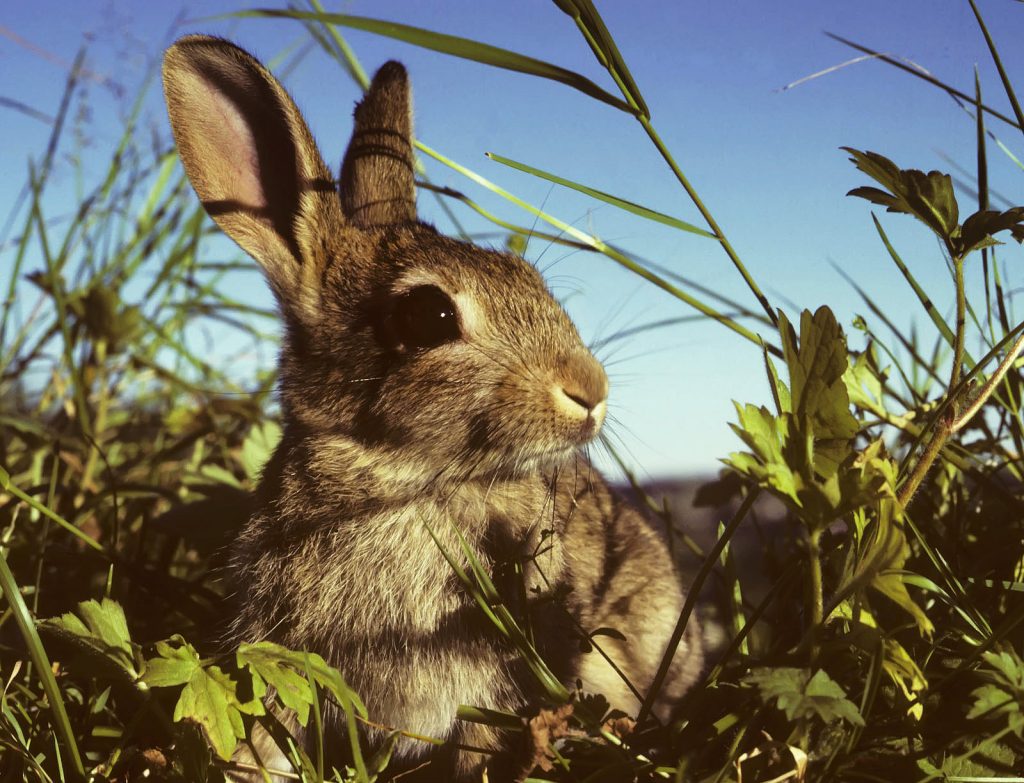The best gifts come in small packages
It is always good to see nature bouncing back. Unless of course you are a keen gardener or have a flourishing vegetable patch. People are not the only animals to survive pandemics. Some of our wildlife in recent years, has also been hit hard. Seeing our lawn once again being nibbled, I was reminded of a memorable encounter.
Of all the wild animals I have seen, none come close to the most clever, curious and entertaining that I first met when my children were young. A furry ball with the artfulness of a monkey and the acceleration of a racing car. Because I always told my young family that you “are what you eat”, they called him ‘Clover’. This very young animal first came into our lives after I filmed at the RSPCA Wildlife Rescue Centre in Somerset. I was so impressed with the people and place that I took up an invitation to return with my wife and young children. After being shown an assortment of young and very lively, ready to be released wild animals, we were having a cup of tea in the centre manager’s office, when a shoebox arrived on his desk. He peered inside and shook his head. Then revealed a tiny rabbit, so small it could easily be held in the palm of my wife’s hand. He did not rate the baby’s chances. The creature would need bottle feeding, night and day, for at least the next 72 hours. He was doubtful they had the staff available, so would need a foster home. My family did not need to be asked.
A few days later this helpless, barely crawling creature had crept into our hearts. And just about everywhere else. Luckily, young wild rabbits are easily house trained, a fact we learnt within a few days of returning home. Every evening ‘Clover’ had the free run of our house as well as a purpose-built hutch and pen. In a matter of a month, he seemed fully grown and investigating everything – fire places, chimneys, books, magazine, cupboards and children’s toys. But perhaps more incredible, he enjoyed watching wildlife television programmes. Which considering my work, was perhaps just as well. Our TV was positioned low down, so he had a good view. More remarkable was his first encounter with a TV fox. Clover darted away and hammered his feet on the floor behind our sofa, alerting everyone to the danger!
It was not long before his mischievous nature and curiosity attracted my attention. Watching him I realised that Beatrix Potter, the artist and author of Peter Rabbit, must have kept a wild pet. Not the docile, rather dull domestic variety. Only later did I learn that Beatrix and her younger brother, had a menagerie of wild caught creatures – including mice, hedgehogs and even bats, along with butterflies and other insects. She apparently even took them on family holidays. We did not go that far, but Clover was so imprinted on us and showed no intention of escaping, that he lived a long, happy life as part of our family.
Andrew Cooper
Of all the wild animals I have seen, none come close to the most clever, curious and entertaining that I first met when my children were young. A furry ball with the artfulness of a monkey and the acceleration of a racing car. Because I always told my young family that you “are what you eat”, they called him ‘Clover’. This very young animal first came into our lives after I filmed at the RSPCA Wildlife Rescue Centre in Somerset. I was so impressed with the people and place that I took up an invitation to return with my wife and young children. After being shown an assortment of young and very lively, ready to be released wild animals, we were having a cup of tea in the centre manager’s office, when a shoebox arrived on his desk. He peered inside and shook his head. Then revealed a tiny rabbit, so small it could easily be held in the palm of my wife’s hand. He did not rate the baby’s chances. The creature would need bottle feeding, night and day, for at least the next 72 hours. He was doubtful they had the staff available, so would need a foster home. My family did not need to be asked.
A few days later this helpless, barely crawling creature had crept into our hearts. And just about everywhere else. Luckily, young wild rabbits are easily house trained, a fact we learnt within a few days of returning home. Every evening ‘Clover’ had the free run of our house as well as a purpose-built hutch and pen. In a matter of a month, he seemed fully grown and investigating everything – fire places, chimneys, books, magazine, cupboards and children’s toys. But perhaps more incredible, he enjoyed watching wildlife television programmes. Which considering my work, was perhaps just as well. Our TV was positioned low down, so he had a good view. More remarkable was his first encounter with a TV fox. Clover darted away and hammered his feet on the floor behind our sofa, alerting everyone to the danger!
It was not long before his mischievous nature and curiosity attracted my attention. Watching him I realised that Beatrix Potter, the artist and author of Peter Rabbit, must have kept a wild pet. Not the docile, rather dull domestic variety. Only later did I learn that Beatrix and her younger brother, had a menagerie of wild caught creatures – including mice, hedgehogs and even bats, along with butterflies and other insects. She apparently even took them on family holidays. We did not go that far, but Clover was so imprinted on us and showed no intention of escaping, that he lived a long, happy life as part of our family.
Andrew Cooper



